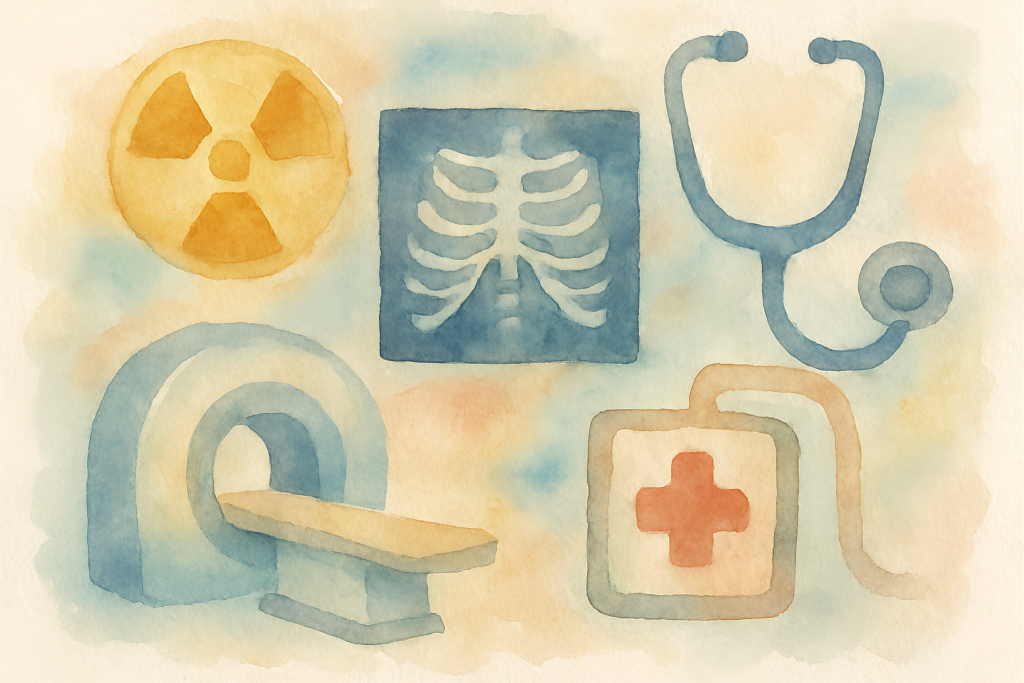

All payers are becoming more aggressive with their claim reviews. COVID-19 alone may trigger enough denials or requests for records to keep one or more people busy at each of our healthcare organizations.
If you haven’t already memorialized the many coding guidance documents from the Centers for Medicare & Medicaid Services (CMS) on COVID-19, now is the time to do it since the activity by the Recovery Audit Contractors (RACs) may be a year or more from now and you’ll need your ammunition to explain why you coded COVID-19 the way you did. This article discusses a denial type that is not solely relevant with COVID-19 claims, but also a potential possibility for any type of condition and commonly seen with inpatient claims.
Denials come in different flavors but generally, there is either a full claim denial or a partial claim denial. One of the partial claim denials is the line-item denial (LID). The LID is one in which a specific line or lines of an itemized claim are carved out by the payer for one or more reasons. The charge is deducted from the total charges and the payer pays the remainder of the claim in accordance with their contract. The first signal that you may have claims undergoing an intense review by the payer, with the end goal of identifying line items to deny, is when you receive a request for an itemized claim statement.
This request of the Patient Financial Services (PFS) department for an itemized statement should automatically trigger an alert to your denials team which should always—always—include a coding professional. That itemized statement is often given to a third party review entity by the payer. That third party may or may not have any knowledge of the contract between your organization and the payer. Their only purpose is to—after the fact—determine that services were unnecessary in their clinical opinion. Typically, staffed by nurses, the review may also address coding. Coders often need to explain and use CMS coding guidelines to justify the coding applied to the claim.
LIDs are not used by all payers because of the type of contract in place with the healthcare facility. LIDs are more prevalent when a payer’s contract is based on a percent of charges. LIDs may also play a role if a contract has a stop-loss provision. If the payer’s contract is based on a case rate such as APC or DRG or if the contract is based on per diem payment, the imposition of line item denials is of no benefit for the payer since they are committed to pay the established flat rate for the APC or DRG or other condition specific service, such as flat rate normal delivery.
However, even the flat rate contracts may include a stop loss clause. This is a clause that says when billed charges reach a certain threshold, the payer will either pay the flat rate plus a percent of the charges above a certain dollar amount or instead of paying the flat rate, the payer will pay a percent of charges. If either of these conditions are present, itemized bills will be requested and the slashing of services may occur with one of the primary goals being to get the amount of charges under the stoploss threshold, so the payer is not required to pay any additional amounts.
As denial specialists, our HIM and coding professionals can rally the physicians involved to contribute to the content of a compelling appeal letter that supports the rationale for those services. What is the basis for a compelling appeal letter? It is one where you:
The reason I suggested that PFS alert us to an itemized claim request is to allow us time to start to identify the physicians involved in the case in anticipation of a denial. We can start to review the record, tie the physicians to their orders and services, and forecast what might be denied. Our timeline for submitting an appeal is often 30-45 days before the denied services are permanently denied. So, every hour counts.
There is value to pursuing line-item denials. Without monitoring line-item denials, hospitals could be sacrificing 5 to 10 percent of their expected net revenue. That’s a big chunk of greenbacks. Remember, net revenue is the amount of dollars the hospital really expects to receive.
Roughly 65 percent of the denials are appealable, so for those of you that consider yourself tenacious, enjoy partnering with physicians to support the rationale for the care they delivered, and have a desire to help maintain the organization’s bottom line, leading or participating the management of line item denials is well worth it.



Please log in to your account to comment on this article.

Sepsis sequencing continues to challenge even experienced coding and CDI professionals, with evolving guidelines, documentation gaps, and payer scrutiny driving denials and data inconsistencies. In this webcast, Payal Sinha, MBA, RHIA, CCDS, CDIP, CCS, CCS-P, CCDS-O, CRC, CRCR, provides clear guideline-based strategies to accurately code sepsis, severe sepsis, and septic shock, assign POA indicators, clarify the relationship between infection and organ dysfunction, and align documentation across teams. Attendees will gain practical tools to strengthen audit defensibility, improve first-pass accuracy, support appeal success, reduce denials, and ensure accurate quality reporting, empowering organizations to achieve consistent, compliant sepsis coding outcomes.

Expert presenters Kathy Pride, RHIT, CPC, CCS-P, CPMA, and Brandi Russell, RHIA, CCS, COC, CPMA, break down complex fracture care coding rules, walk through correct modifier application (-25, -57, 54, 55), and clarify sequencing for initial and subsequent encounters. Attendees will gain the practical knowledge needed to submit clean claims, ensure compliance, and stay one step ahead of payer audits in 2026.

Accurately determining the principal diagnosis is critical for compliant billing, appropriate reimbursement, and valid quality reporting — yet it remains one of the most subjective and error-prone areas in inpatient coding. In this expert-led session, Cheryl Ericson, RN, MS, CCDS, CDIP, demystifies the complexities of principal diagnosis assignment, bridging the gap between coding rules and clinical reality. Learn how to strengthen your organization’s coding accuracy, reduce denials, and ensure your documentation supports true medical necessity.

Denials continue to delay reimbursement, increase administrative burden, and threaten financial stability across healthcare organizations. This essential webcast tackles the root causes—rising payer scrutiny, fragmented workflows, inconsistent documentation, and underused analytics—and offers proven, data-driven strategies to prevent and overturn denials. Attendees will gain practical tools to strengthen documentation and coding accuracy, engage clinicians effectively, and leverage predictive analytics and AI to identify risks before they impact revenue. Through real-world case examples and actionable guidance, this session empowers coding, CDI, and revenue cycle professionals to shift from reactive appeals to proactive denial prevention and revenue protection.

In this timely session, Stacey Shillito, CDIP, CPMA, CCS, CCS-P, CPEDC, COPC, breaks down the complexities of Medical Decision Making (MDM) documentation so providers can confidently capture the true complexity of their care. Attendees will learn practical, efficient strategies to ensure documentation aligns with current E/M guidelines, supports accurate coding, and reduces audit risk, all without adding to charting time.

Join Ronald Hirsch, MD, FACP, CHCQM for The PEPPER Returns – Risk and Opportunity at Your Fingertips, a practical webcast that demystifies the PEPPER and shows you how to turn complex claims data into actionable insights. Dr. Hirsch will explain how to interpret key measures, identify compliance risks, uncover missed revenue opportunities, and understand new updates in the PEPPER, all to help your organization stay ahead of audits and use this powerful data proactively.

Stay ahead of the 2026-2027 audit surge with “Top 10 Audit Targets for 2026-2027 for Hospitals & Physicians: Protect Your Revenue,” a high-impact webcast led by Michael Calahan, PA, MBA. This concise session gives hospitals and physicians clear insight into the most likely federal audit targets, such as E/M services, split/shared and critical care, observation and admissions, device credits, and Two-Midnight Rule changes, and shows how to tighten documentation, coding, and internal processes to reduce denials, recoupments, and penalties. Attendees walk away with practical best practices to protect revenue, strengthen compliance, and better prepare their teams for inevitable audits.

As AI reshapes healthcare compliance, the risk of biased outputs and opaque decision-making grows. This webcast, led by Frank Cohen, delivers a practical Four-Pillar Governance Framework—Transparency, Accountability, Fairness, and Explainability—to help you govern AI-driven claim auditing with confidence. Learn how to identify and mitigate bias, implement robust human oversight, and document defensible AI review processes that regulators and auditors will accept. Discover concrete remedies, from rotation protocols to uncertainty scoring, and actionable steps to evaluate vendors before contracts are signed. In a regulatory landscape that moves faster than ever, gain the tools to stay compliant, defend your processes, and reduce liability while maintaining operational effectiveness.
Prepare for the 2025 CMS IPPS Final Rule with ICD10monitor’s IPPSPalooza! Click HERE to learn more
Get 15% OFF on all educational webcasts at ICD10monitor with code JULYFOURTH24 until July 4, 2024—start learning today!
CYBER WEEK IS HERE! Don’t miss your chance to get 20% off now until Dec. 1 with code CYBER25
CYBER WEEK IS HERE! Don’t miss your chance to get 20% off now until Dec. 2 with code CYBER24